Winter 2021 Newsletter
Eco-Hero Spotlight
The Keys to Sustainability with Dr. Holly Myers
by Sam Farabaugh - Sustainability Intern
The Eco-Hero Spotlight is an initiative started by Campus Sustainability to actively seek out and recognize individuals or groups that make an eco-friendly impact on BGSU. Anyone can be an Eco-Hero, so long as they are willing to do what it takes to promote sustainability. In this month's newsletter, our Eco-Hero is BGSU’s Dr. Holly Myers. She has been a professor at BGSU in the School of Earth, Environment and Society for over 20 years now and has been very impactful to BGSU students.
Being a child of the late 60s and growing up amidst a world of change, Dr. Holly Myers was surrounded by the environmental movement from a young age. It wasn’t until college, however, that she truly started to become passionate about environmentalism. During graduate school at University of Washington in Seattle, she says the environmental movement had grown so much that the university made it easy to support it. She remembers her time in Seattle very fondly, including the bike paths throughout the city and the supportive, eco-friendly community.
Dr. Myers has been working at BGSU since 1996, not only as a professor, but as an advisor to the Environmental Action Group for a number of years, a faculty representative for the GreenFund Committee for the past 9 years, a facilitator to service-learning projects, field trips, Bowling Green Alternative Breaks, and a volunteer to Wood County Parks over the years. Her favorite part of these experiences was seeing the involvement and passion for the environment from the students. She also liked seeing the changes they were able to make on campus as she says, “I just like feeling a part of the community.” She would always meet fun people at the volunteer opportunities, and it gave her a chance to take time outside that day.
She has taught many environmental policy courses, including Introduction to Environmental Studies, Environmental Planning, and Environmental Justice. Dr. Myers can see a future of many jobs in the environmental planning field. Additionally, she sees environmental justice as a very important class as it is “at the heart of sustainability.” She believes that people should understand all aspects of sustainability, an important one being equity. We should do this through looking at the environment; improving people’s lives stems from improving our relationship with the environment first and foremost.
Dr. Myers thinks that climate change is our most pressing environmental issue, and one that can be significantly changed if we put more of our focus on alternative, renewable energy. She can see a future where renewable energy creates more jobs, safer working conditions, and adds to richer lives. She explained that current situations of coal workers are unsafe and lead to cancer or other health issues. These communities that rely on coal have shorter life spans and workers are at a higher risk of death at their jobs. If we create an economic base independent of coal and develop more alternative energy, these communities can become richer, safer, and more sustainable.
Educated on a wide range of sustainability topics, Dr. Myers has a lot of advice to give about being sustainable but is able to keep it simply stated with, “Just do it.” In her personal life, Dr. Myers keeps a composting bin and does what she can to be sustainable, like driving less when possible, gardening, recycling, and bundling trips. She encourages students who live close to campus to bike as much as they can instead of driving.
Looking at the current generation and the future of the environment, Dr. Myers sees promise in Gen Z and hopes that they are able to find compromises with people in power. She thinks getting involved within our communities and regaining that communication and opportunity to raise awareness about issues would help us put our heads together to come up with the best compromises. Our human actions affect humans, so it is important to see the linkages between our actions and public health. As we know, “You can’t fool Mother Earth.” Dr. Myers encourages us all to do what we can, even if it’s small or at the local level, to sustainably improve our quality of life.
Thank you, Dr. Myers, for being an Eco-Hero and for all that you have done to teach and model sustainability at BGSU.
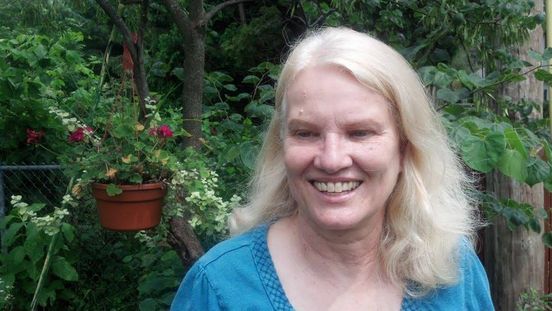
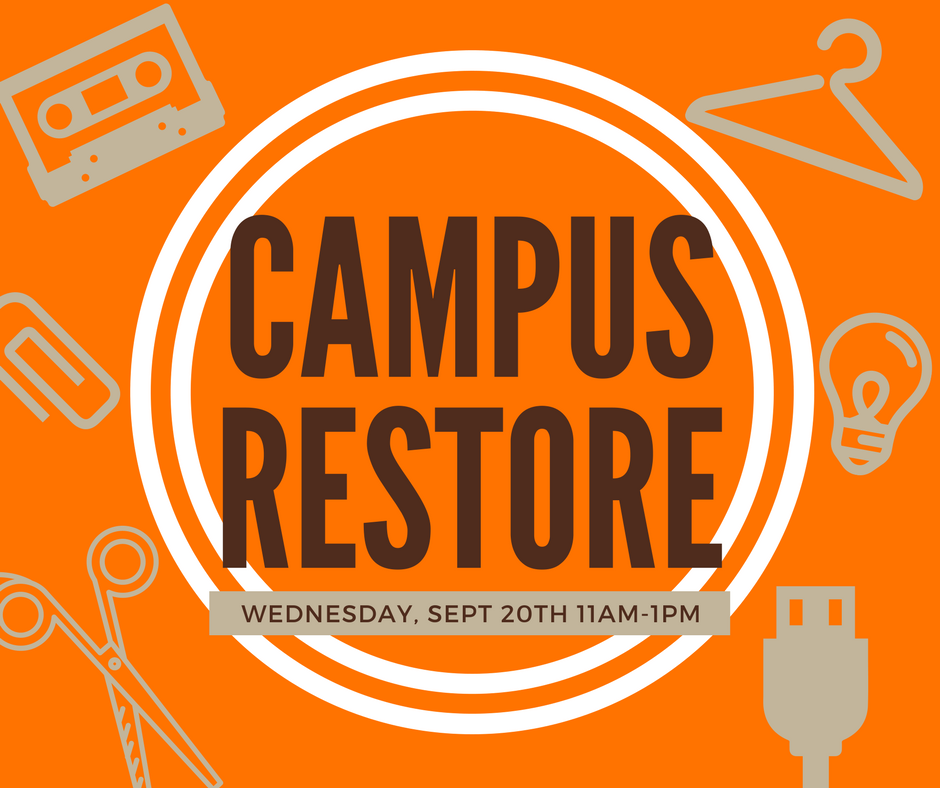
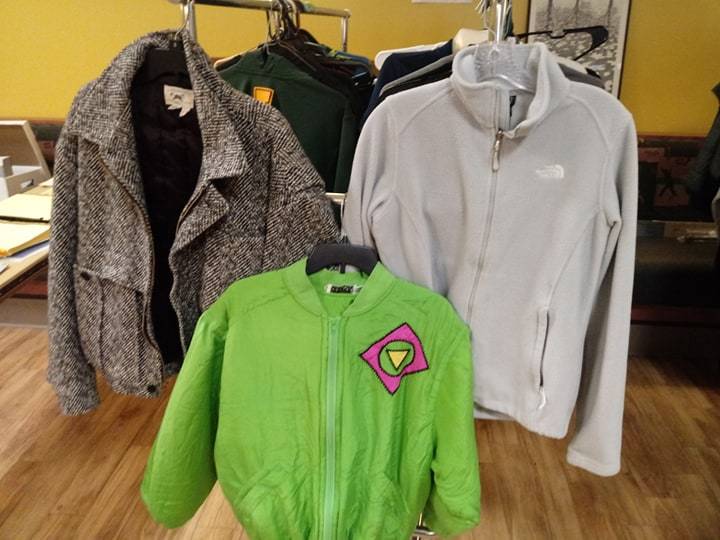
Don’t Throw it Away, Donate it to the ReStore Today!!
By Justin Bennington – Sustainability Assistant
Campus Sustainability strives to reduce waste at BGSU through programs and initiatives such as composting, recycling, service projects and overall education. Of these programs, the Campus ReStore is one of the biggest waste reduction efforts employed throughout the year to prevent waste and encourage reuse. In the beginning, the ReStore started with a focus on office supplies and was originally entitled “Once upon a Desk”. Since then, the ReStore has been located at several sites on campus, growing, and generating an ever-increasing customer base. Through it all, the ReStore’s goal of waste reduction through reuse never changed, and it benefits both the university community and the environment.
The ReStore is currently located in the McDonald Hall Annex. The entrance is adjacent to the Offenhauer Courtyard. This semester, four ReStore events were hosted. Two of these events were held at the beginning of the semester during move in weekend. The October event took place during Sustainability Week, and the last event took place in mid-November. These events typically see about 300 customers during the standard 3 hours of operation, including students, faculty, and staff. While browsing the ReStore, students, faculty and staff can find an array of items up for grabs. Items include: office supplies, kitchenware, clothes, books, toiletries, furniture, BGSU themed items, and holiday décor. Although inventory is varied, everyone that shops at the ReStore is limited to taking a reasonable quantity of items so that everyone has an equal opportunity to find what they need. Items are also accumulated and donated to non-profits on a regular basis.
Campus Sustainability stocks the ReStore with items received through donations from office departments, residence halls, and other areas with surplus. The ReStore also acquires a number of lost and found items and items that were simply abandoned. Individual donations are sometimes made. The Campus Sustainability website has a ReStore webpage. On that page, there is a link to a Maintenance Request form where any BGSU staff/faculty/office can submit a request for Campus Sustainability to come collect items that they wish to donate. Simply indicate in the work order that you “have a donation of items for the Campus ReStore”.
The ReStore takes what is unwanted and gives it those that need. It prevents unnecessary accumulations of landfill waste and fuel used to transport waste, encourages recycling and reusing, provides for students, faculty and staff, and promotes a positive example of initiatives that are both sustainable on our campus and preserve the environment.
If you are interested in learning more about the ReStore, making a donation, or have any questions, contact Campus Sustainability at greenbg@bgsu.edu. Although the ReStore is closed for the rest of the fall semester, it will be open again in spring. Customers can return on January 20th, February 17th, and March 17th from 10am-1pm. We hope to see you at the ReStore then!
Where Are They Now?!
by Sam Farabaugh - Sustainability Intern
Over the years, many interns have walked in and out of The Office of Campus Sustainability doors. These interns have made major contributions and impacts that have marked successful milestones for the Office of Campus Sustainability. We wanted to know what these interns have been up to and how the work they did as an intern has impacted their lives. Therefore, we started the newsletter series- “Where Are They Now?!”
This November, the Office of Campus Sustainability reconnected with former intern, Connor Evans.
Connor graduated from BGSU in 2018, with a Bachelor’s degree in Environmental Policy and Analysis. He is now the Midwest Business Development Manager for APA Solar Racking and handles their Midwest accounts, where he meets with others and sells them the steel racking needed for solar panel projects. He worked with Campus Sustainability his Senior year and reflects fondly on his time here.
Connor Evans | Campus Sustainability Intern, (2017-2018)
Connor was a Green Game Day Coordinator during his time at the office, as well as helping with Friday Night Lights, Sustainability Week, and other green initiatives on campus. His most rewarding experiences were at the end of Green Game Days at football games when they could look collectively at all the recycled items that they were saving from the landfill. He can still remember the amount of cans and bottles that were recycled from the Homecoming game and was shocked by how much waste a single football game could produce, and that they could divert from the landfill.
While working as the Green Game Day Coordinator, Connor learned several skills that he applies to his current life, including communicating effectively and executing ideas. These skills are applicable to his current role as a Business Development Manager because customers need to be able to trust him with project information and he must perform on his end to help execute the larger goal. He communicates with many different people and must help each of them with their unique projects.
Through helping with Green Game Day and many other sustainable initiatives on campus, Connor found that the most challenging part about making BGSU sustainable was recycling. He helped with marketing and signage for recycling but found that it always came down to personal responsibility. “You can’t force someone to recycle or care about recycling. It is up to the individual to make that educated decision and understand the larger picture.” Still, Connor is most proud of the volunteers who came back to events and continued participating in recycling and sustainability activities. It always encouraged him to see new people show interest in the environment and bring their friends to more events.
Connor’s final advice for current BGSU students is to find a career that you can earn a living off of but also one that you care about. He stresses reading more books, being yourself, and finding a career that you can grow in and enjoy. All jobs will have downsides, but it’s important that you can put some of your personal self into your job, or else you could get burnt out. “No amount of money is worth sacrificing your own personal pursuits in life.”
Do you have any special memories of Campus Sustainability interns? Let us know at Greenbg@bgsu.edu.
A Greener Office is a Greener BG
by Madison Carney - Sustainability Intern
Campus Sustainability's "Green Office Certification" program provides offices across the university with the opportunity to move BGSU closer to its sustainability goals through simple actions that can be done every day. It takes the efforts of the entire community to reduce our carbon footprint and use less energy, produce less waste, and in the process, both help the environment and save us money/resources. Many thanks to those offices that have already gone through the certification process, such as BGSU Dining, the Office of the President, and The Division of Student Affairs and more. A full list of the over 15 offices on campus that have become Green Certified can be found on the Green Office Website (https://www.bgsu.edu/campus-sustainability/green-office-certification.html)
We are in the process of rebranding and further streamlining this initiative to become the "Green Nest" program. Our goal is to make participation as simple and easy to understand as possible and to get even more offices on board. This can be done through a no-contact, safe, virtual process, no matter how large your office or department! Obtaining Green Nest certification provides role modeling to everyone who comes in contact with your office and is a strong and visual commitment to sustainability at BGSU and our existence as a public university for the public good.
If your office would like to get a Green Office Certificationn, you can begin by contacting the Office of Campus Sustainability at greenbg@bgsu.edu or by looking at the Green Office website. Once in contact with a representative, you will receive a check sheet to go over on your own time which lists all the requirements. If/when you believe you have met these, an intern will come and assess your office.
If you receive a 75% or higher, congratulations! You have become a Green Office.
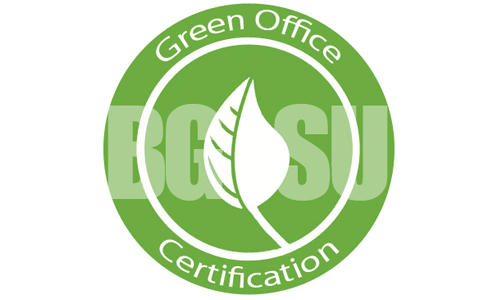
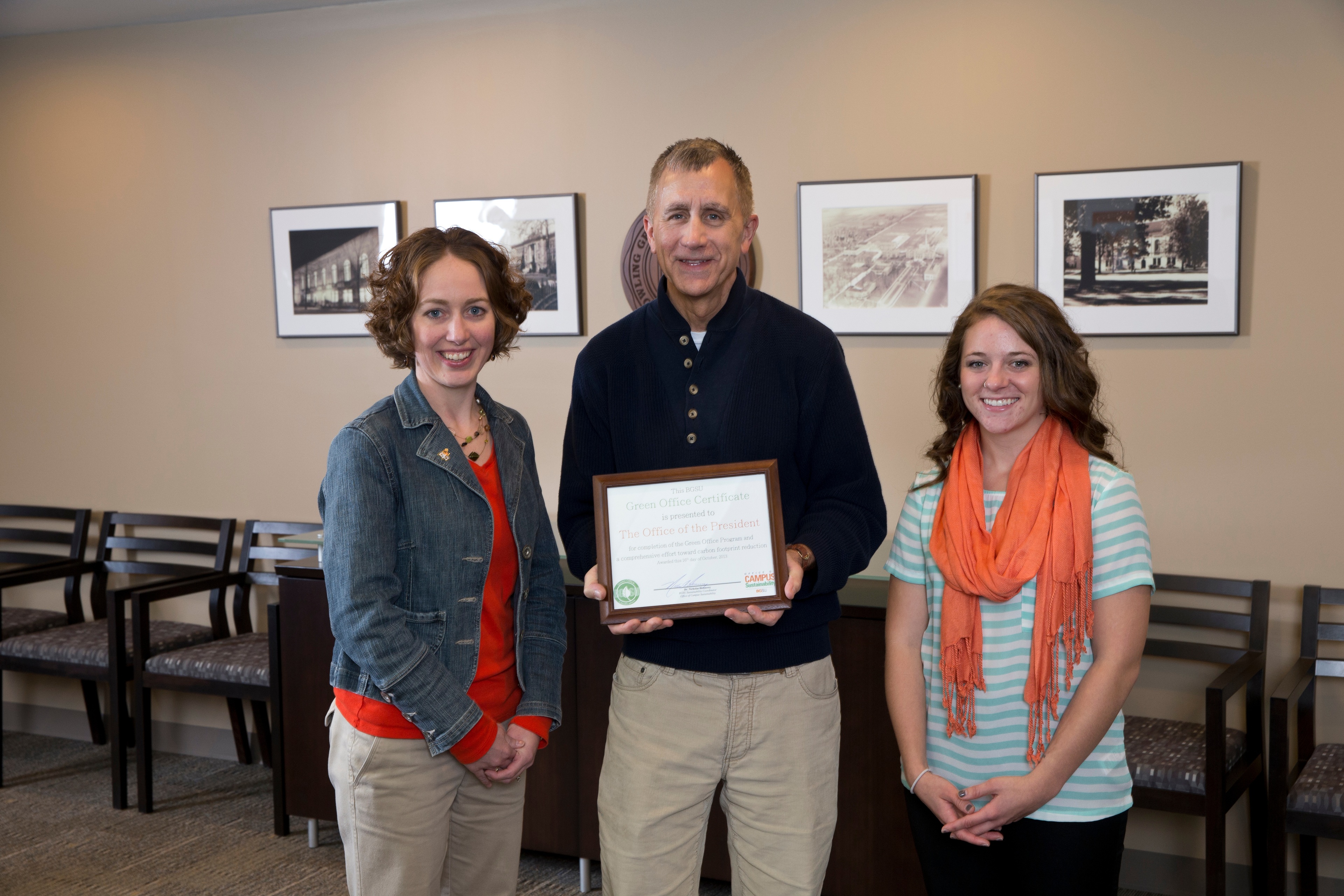
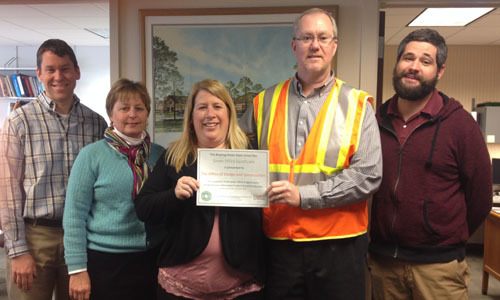
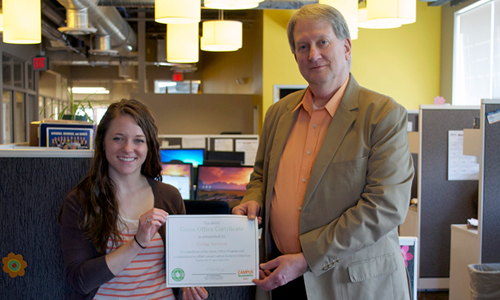
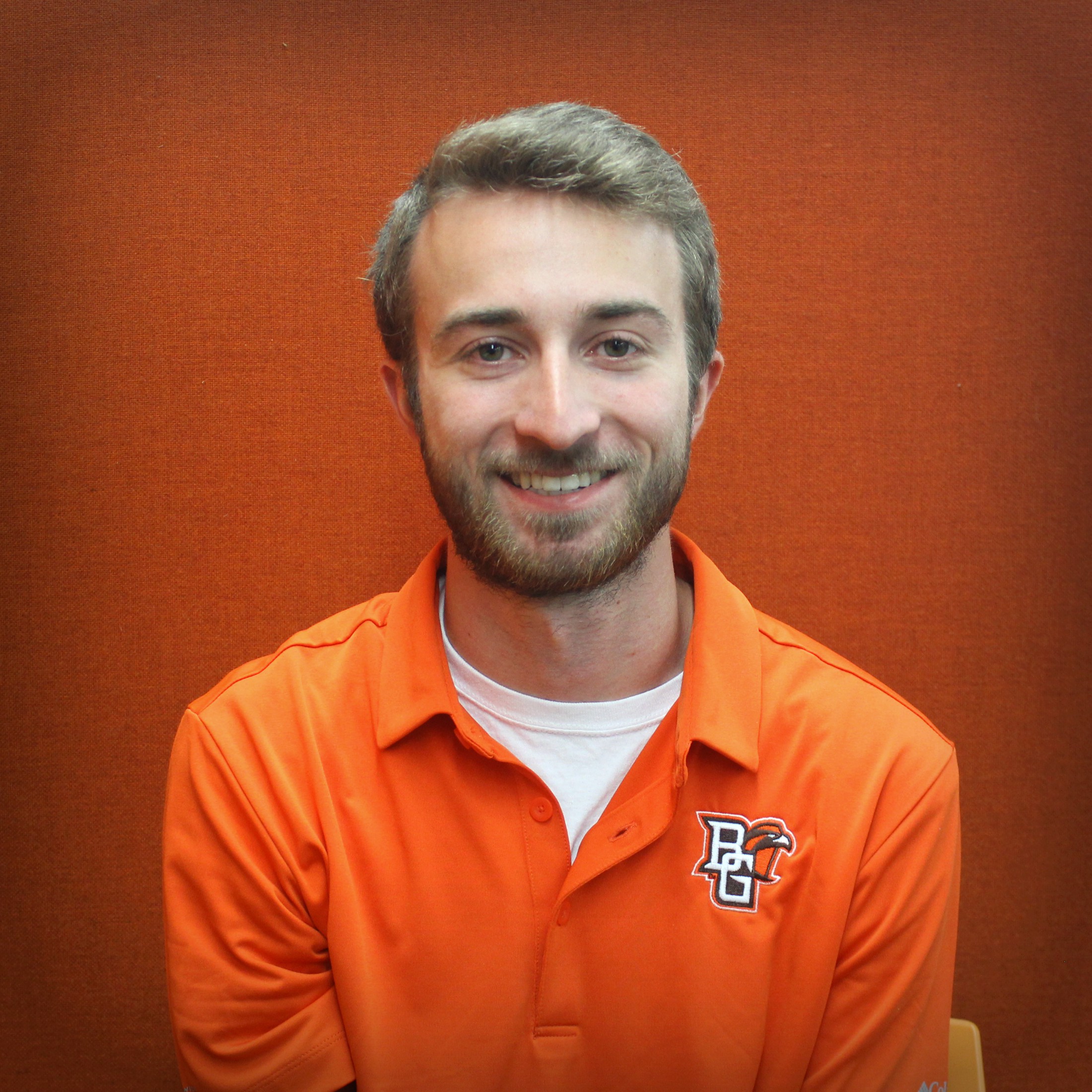
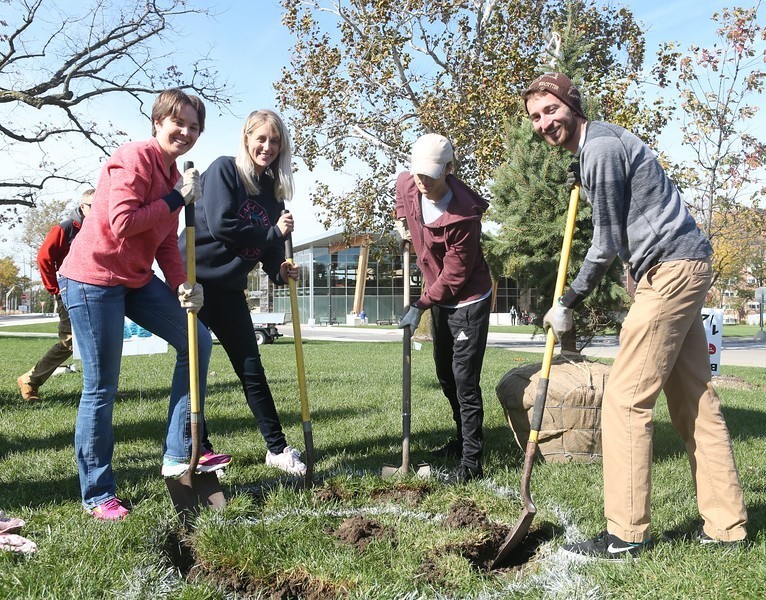

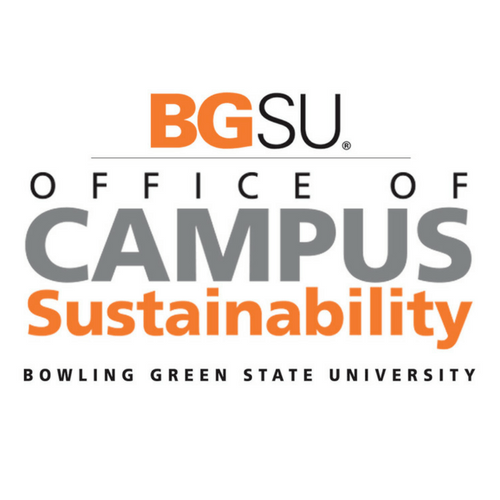
Sustainability Questions & Suggestions
Do you have any questions, comments, concerns, or suggestions related to sustainability? If so, feel free to contact us at greenbg@bgsu.edu.
Alternatively, you can reach us on Facebook, Twitter, or Instagram @GreenBGSU.
We look forward to hearing from you!
Like staying up to date on all of BGSU's sustainability updates? Be sure to subscribe to this newsletter to get it sent to your email inbox each month!
Updated: 01/19/2024 01:02PM
